With honors: Erica Wehrwein receives the President's Distinguished Teaching Award
Wehrwein’s commitment to teaching and leadership in physiology earns university-wide recognition.
Article Highlights
- Wehrwein credits her high school biology teacher, Mr. Ferne “Bud” Ellis, for sparking her passion for science and education, which led her to a distinguished career in physiology.
- Recognized for her contributions to physiology education, Wehrwein's capstone course blends academic rigor with career and professional development for students.
- The 2025 President’s Distinguished Teaching Award adds to a series of teaching honors
recognizing Wehrwein’s lasting impact on both MSU and the field of physiology education.
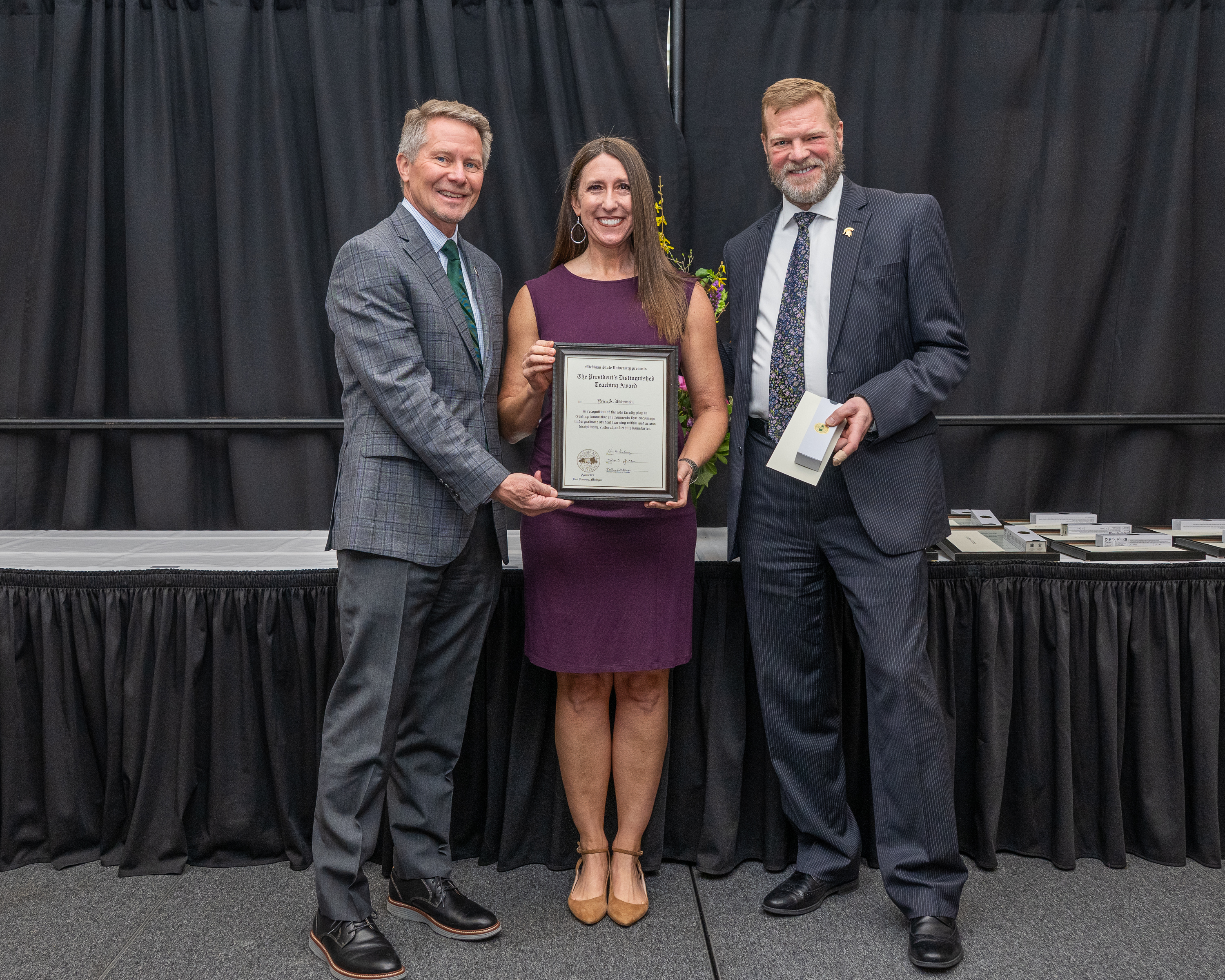
Erica Wehrwein has always been driven by determination.
Years before she became a nationally recognized leader in physiology education, before she taught hundreds of future health professionals or chaired a national center that provides resources to educators around the world, she was a high school student in the small rural Michigan town of Addison— carrying around a dyed egg in a homemade “Bio uterus.”
It was part of a creative genetics unit developed by her high school biology teacher, Mr. Ferne “Bud” Ellis. Wehrwein credits his mentorship and his engaging, challenging approach to science for igniting the spark that set her educational goals in motion.
“There have been many incredible mentors in my life, but I always give credit to Mr. Ellis,” Wehrwein said. “He taught me biology and chemistry, introduced me to research, and was the first person who helped me understand what graduate school even was. His passion and guidance really set me on this path.”
Ellis, who began his teaching career in 1973 and taught for 37 years, believed science should be fun, challenging and, most importantly, real.
“As a teacher, it just makes my day when students pick science as a career choice,” he said. “I always wanted students to see how much I loved science and the joy of being a scientist using science to help people.”
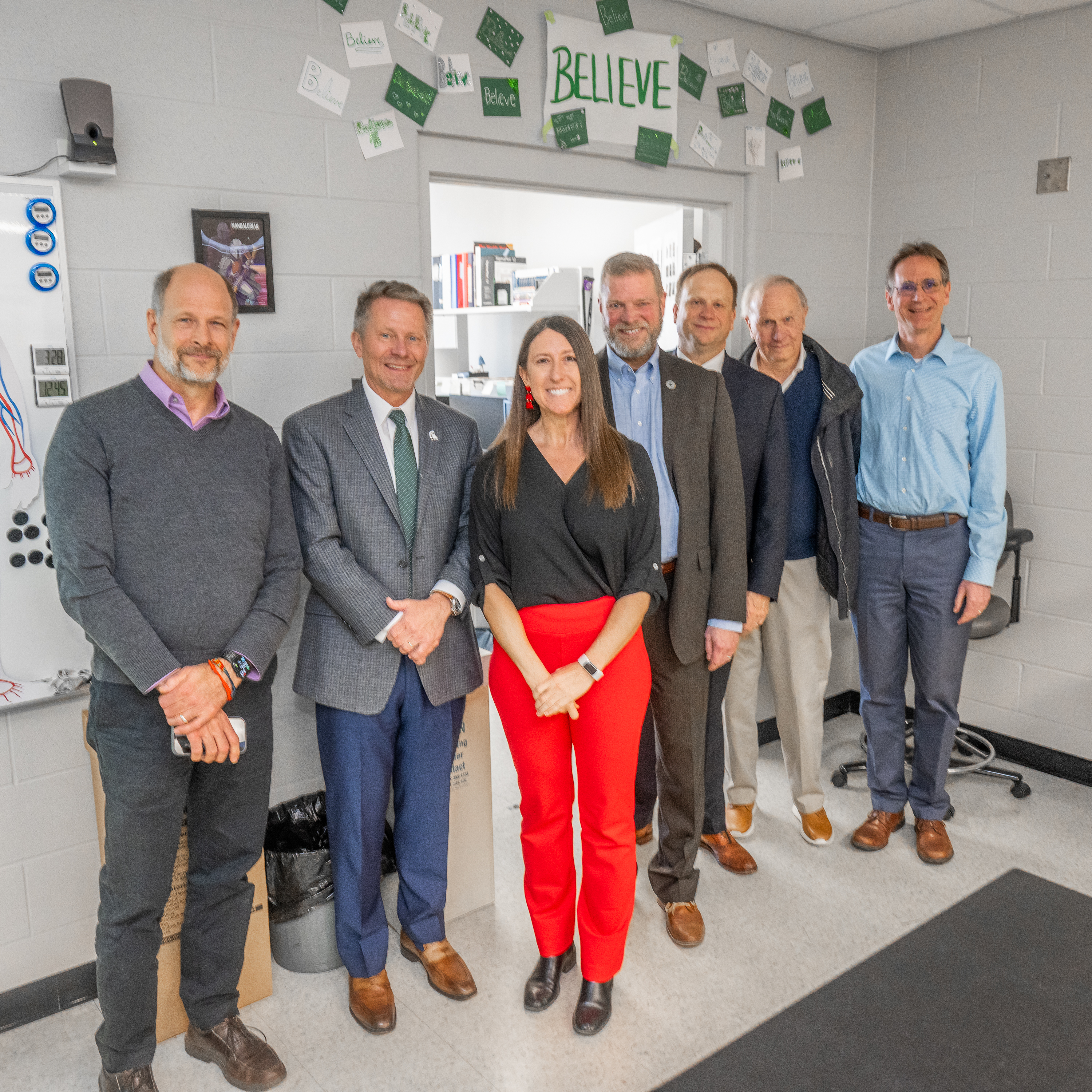
Wehrwein was one of those students who not only embraced the challenge but thrived in it.
“She was a high-achieving student who was quick to learn and enjoyed the process of learning,” Ellis recalled. “Students saw Biology II and chemistry as hard, challenging classes but she did not care. She took them and did very well in them.”
This early academic ambition offered a glimpse of the dedicated educator and scientist Wehrwein would become. Now a professor in the Department of Physiology at MSU, she was recently honored with the 2025 President’s Distinguished Teaching Award in recognition of her commitment to mentorship and student success.
“Erica brings genuine passion and dedication to her teaching, consistently refining her learning activities to support the success of all students,” said Karl Olson, interim chairperson for the Department of Physiology. “Her commitment is especially evident in the capstone laboratory experience, which many students remember as a highlight of their time at MSU. Beyond the classroom, Erica’s impact extends through her ongoing efforts to promote physiology education via numerous community outreach programs. She has also made significant contributions to medical education, playing a key role in enhancing the learning experience for future healthcare professionals.”
This recognition of Wehrwein’s teaching impact reflects a broader evolution in her approach to education. Early in her career, Wehrwein was deeply focused on the content itself, ensuring that her students grasped the fundamental principles of physiology. However, over time, she began to see the greater importance of mentoring her students in their professional and personal development.
"I realized that my role extended beyond just teaching content,” she said. “It’s about coaching students one-on-one and making sure that they know who they are and have the right tools to succeed.”
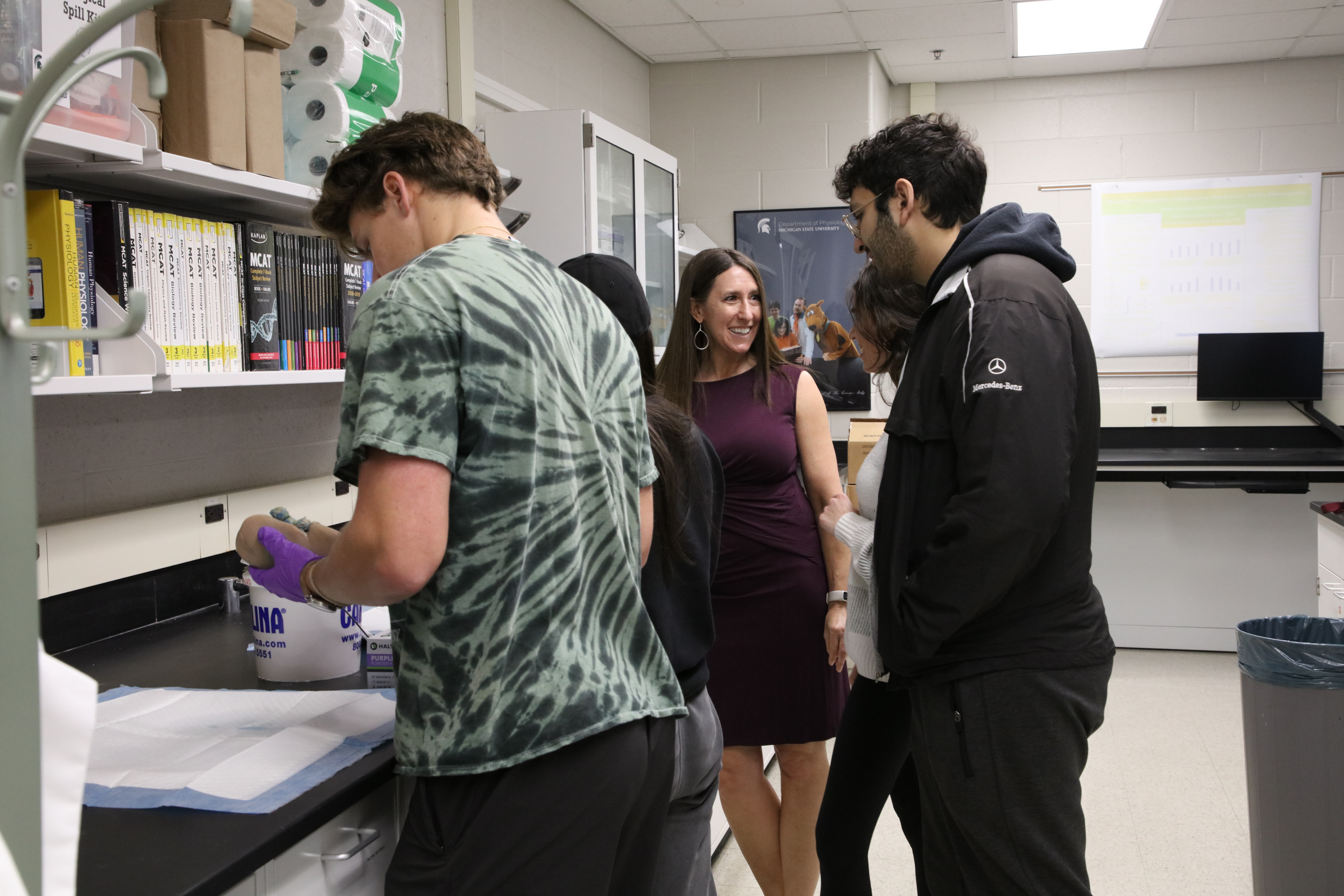
This shift became especially clear through her work in the physiology capstone course, where students practice career and professional skills in addition to mastering physiological content. Weekly office hours, which Wehrwein calls "life meetings," have become an essential part of her mentorship, where she helps students navigate obstacles like gap years, career choices, and long-term plans.
"It's become incredibly rewarding to watch students leave with a plan for the future," she said. "Our content is still 90% Physiology, but I’ve added a lot more professional development."
These changes implemented by Wehrwein were one of the reasons why Sue Barman, a professor in MSU’s Department of Pharmacology and Toxicology, and Adele Denison, who taught for 24 years in the Department of Physiology before retiring in 2021, co-nominated Wehrwein for the award.
Denison, who sees herself as a synergistic partner to Wehrwein rather than a mentor, described how their relationship evolved from working together on department committees to co-founding their two-member group that they both fondly refer to as the 'Mutual Admiration Society.'"
“What started as a joke transformed into many years of supporting each other,” Denison said. “Even while backpacking or camping, we had conversations about how to help our students and how to be better teachers. This award is the culmination of our secret society formed so long ago.”
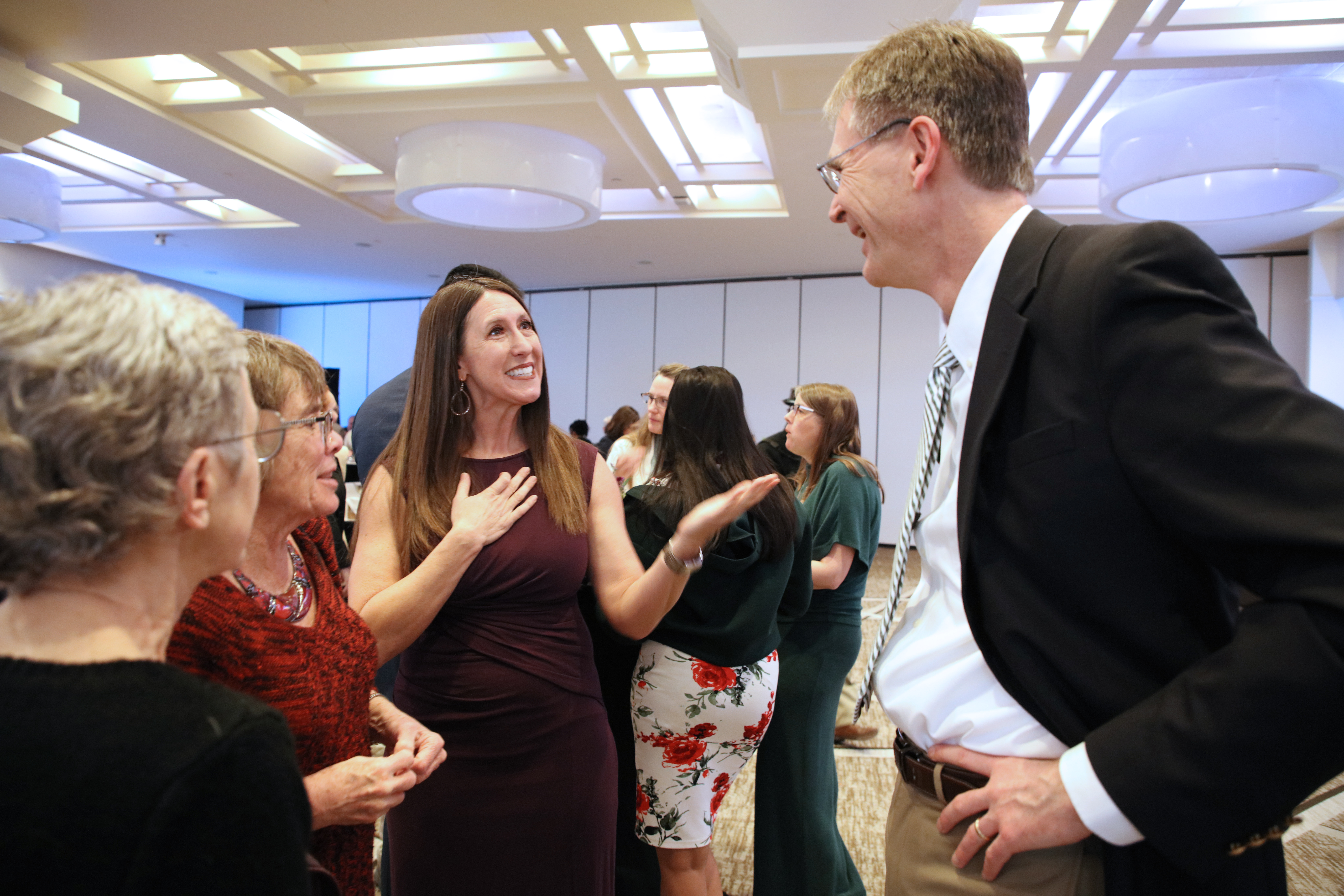
Denison, Barman and Wehrwein shared a conversation with Dean Hegg during the 2025 All-University Awards ceremony. "Erica winning this award shows that there's just so much fantastic teaching and mentoring that goes on in our College [of Natural Science] and in Department of Physiology,” Hegg said, pictured at right. “This is just a fantastic recognition of all the hard work that our faculty do and their incredible dedication.” Credit: T. Lee
Among Wehrwein’s lasting impacts are her advocacy for evidence-based teaching methods and the development of a physiology curriculum that serves both undergraduate and medical students. Her influence extends beyond MSU through her leadership roles in the Physiology Majors Interest Group, the Michigan Physiological Society, and the American Physiological Society’s Center for Physiology Education, where she was recently appointed chairperson of its Advisory Board. Last year, Wehrwein was also named an American Physiological Society Fellow, a prestigious title reserved for leaders who have made distinguished contributions to the field.
Eric Hegg, dean of the College of Natural Science, praised Wehrwein as the embodiment of an exceptional educator, noting that her work speaks for itself.
“Erica really exemplifies what it means to be a fantasic educator," Hegg said. "She ensures that everyone feels welcome and is able to reach their full potential. She also gives students the opportunity to explore and learn things on their own. And that's just a fantastic combination."
Ellis, who has received several prestigious teaching honors — including having his biology programs recognized as national exemplars by the National Science Teachers Association and being named Michigan’s Outstanding Biology Teacher by the Michigan Biology Teachers Association — believes teaching awards remind educators that their work truly makes a difference in people’s lives.
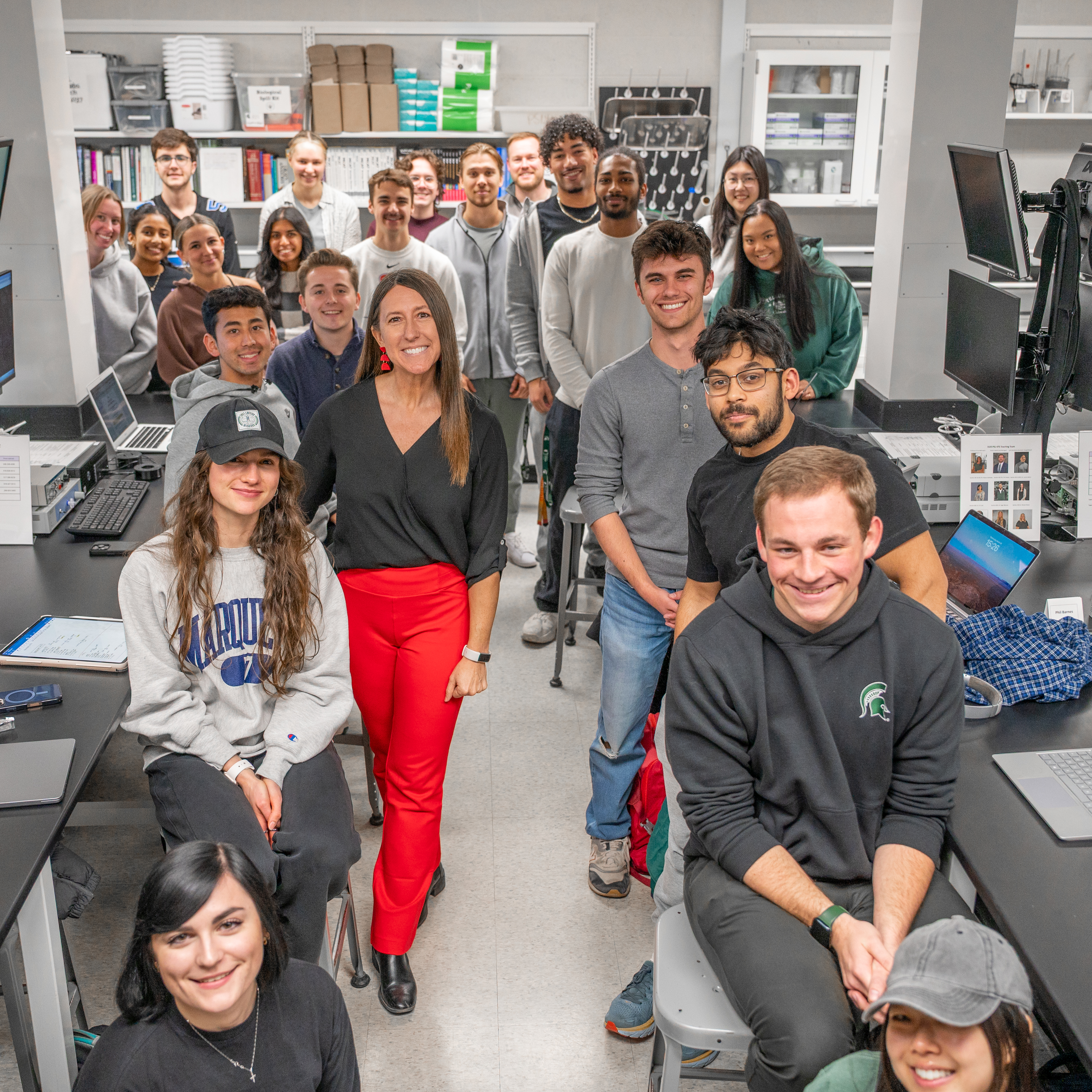
“Effective teaching takes a lot of work,” he said. “Awards like Erica’s show that the work does make a difference and will motivate her to continue with the hard work of teaching. I congratulate MSU for recognizing its most effective teachers. It is at the heart of what a university should do: teach!”
Continued to be driven by determination and her new role as chairperson of the CPE Advisory Board, Wehrwein wants to address the challenges currently facing Physiology education.
“One of the biggest challenges in physiology education at the national level is the funding priorities from the National Institutes of Health (NIH), which favors funding cell and molecular type of research,” she said. “That’s incredibly important work, but it has created a situation where most graduate training programs have focused on those areas. Because of that, we now have fewer faculty trained to teach whole-body and systems physiology.”
This divide, she believes, represents a "tale of two physiologies" where cellular expertise flourishes, but whole-body, integrated teaching has suffered.
“I think right now is the perfect time to have these conversations because it's a crisis moment for the discipline of human integrative physiology,” Wehrwein said. “We’re to the point where we need conversation and some definitive action. I want to help lead that.”
- Categories:



